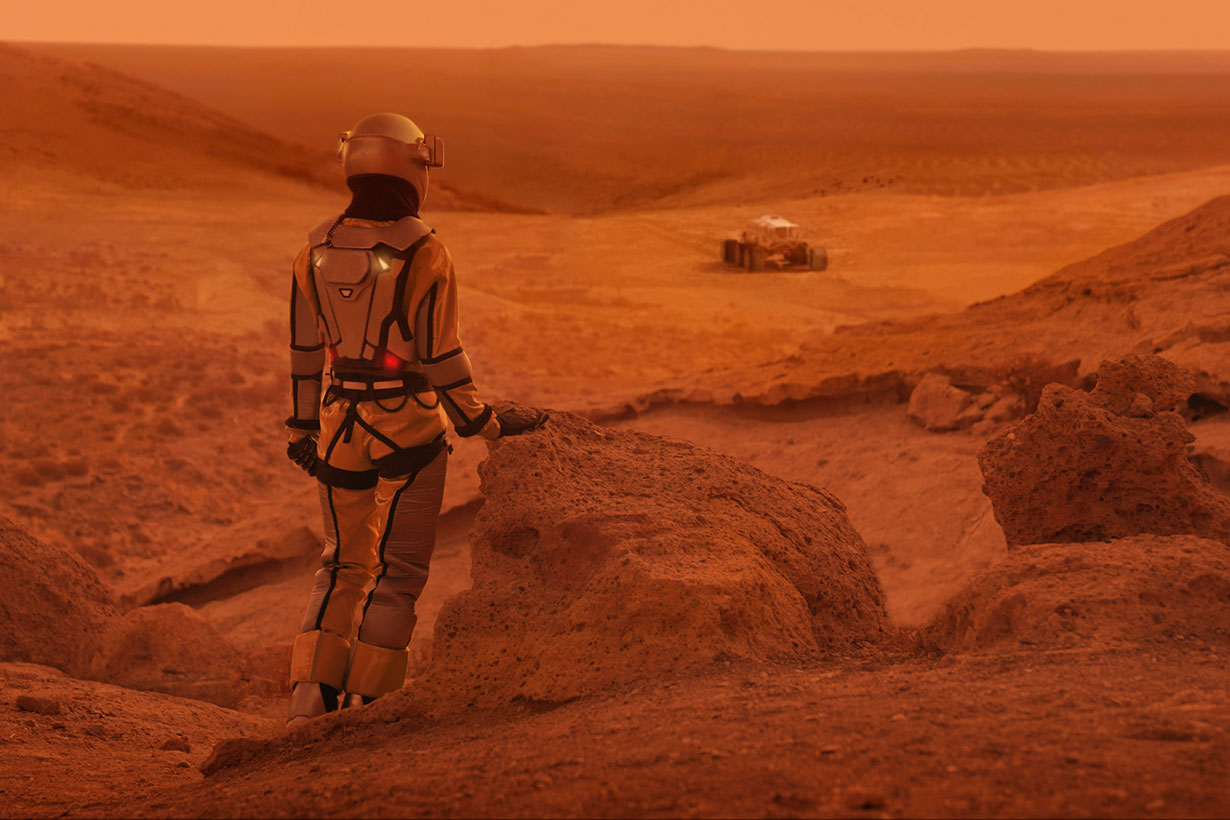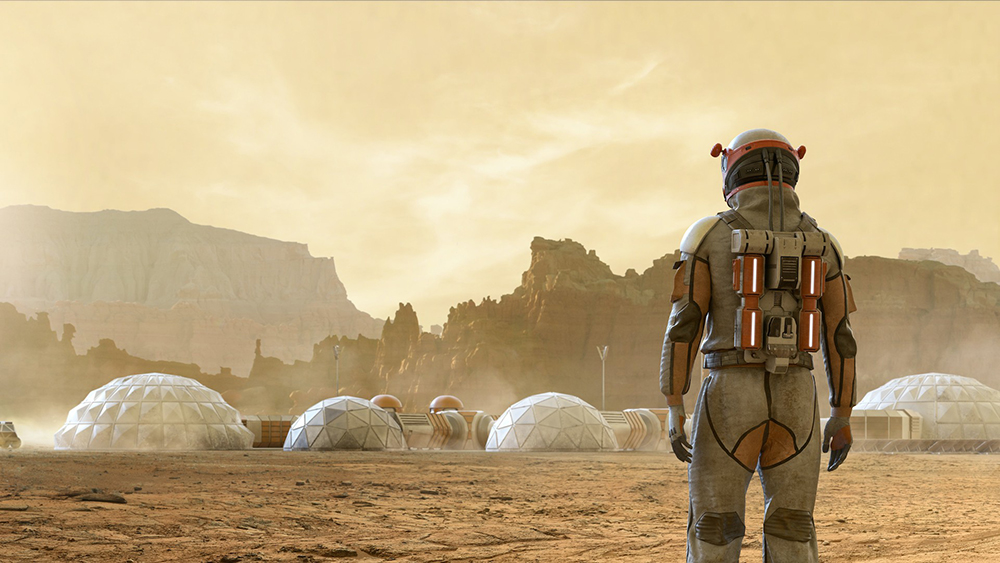CLOSE
About Elements
TANAKA is a leading company in the field of precious metals.
Advanced materials and solutions that support societal progress, the development stories behind them, the voices of engineers, and our management philosophy and vision—
Elements is an online media platform that shares insights that lead to a better society and a more prosperous future for the planet under the slogan “Mastering Precious Metals.”

How long will it take for humans to colonize another planet?

SpaceX CEO Elon Musk wants to have a city of a million people on Mars by 2050. That may sound astronomically ambitious considering humans have never set foot on the Martian surface. But is it feasible? How long would it take for humans to colonize another planet? And could it ever be possible for people to colonize worlds outside the solar system?
The answers to these questions depend heavily on which planet you’re talking about. For Mars, decades isn’t necessarily an unrealistic time frame. Serkan Saydam, deputy director of the Australian Centre for Space Engineering Research and a professor at the University of New South Wales in Sydney, said human colonization of Mars is possible within decades.
“I believe by 2050 we will have a human colony on Mars,” Saydam told Live Science.
Saydam is a mining engineer who specializes in researching future mining. The first major step in establishing a successful Mars colony will be water, and that can be extracted from ice and/or hydrated minerals, according to Saydam. He thinks water will then facilitate agriculture and the ability to grow food on Mars, like in the 2015 movie “The Martian,” while hydrogen from the ice and minerals could also be used as an energy source for rocket propellant.
But there isn’t a scientific consensus on Mars colonization by 2050, and other scientists have offered less optimistic opinions. Louis Friedman, an astronautics engineer and co-founder of the nonprofit The Planetary Society, suggested to Gizmodo in 2019 that Mars colonization was unlikely for the foreseeable future, while Rachael Seidler, a neuroscientist at the University of Florida who has worked with NASA astronauts, told Gizmodo that people like to be optimistic about colonizing Mars, but it sounded “a bit pie-in-the-sky.”
Humanity will, however, likely reach Mars within decades. China plans to start sending human crews to Mars in 2033, while NASA aims to send astronauts there by the late 2030s or early 2040s. Once humans get there, the next step could be to build a colony.
Related: How many humans could the moon support?
Colonization implies some degree of self-sufficiency but not necessarily complete independence from Earth. Saydam compares Mars with a remote island where you’d still need to import things occasionally. “Most of the equipment and tools will be sent from Earth,” Saydam said. “I don’t think you can manufacture a truck on the Mars surface.”
Mars would need to produce something for a long-term colony to be financially viable. Space tourism is one option, but Saydam pointed to mineral extraction as key to colonization success. For example, space mining on nearby asteroids for valuable materials such as platinum could create new space economies, thereby driving further investment and exploration.
Though Mars is our most realistic option for extraterrestrial colonization, our red neighbor isn’t exactly the most accommodating planet for humans. Mars’ atmosphere is more than 95% carbon dioxide; it’s really cold, with an average temperature of around minus 80 degrees Fahrenheit (minus 60 degrees Celsius); it takes spacecraft from Earth about 8.5 months to reach; and it’s bombarded with harmful radiation.
RELATED MYSTERIES:
—Could Earth ever leave our solar system?
—Could climate change make humans go extinct?
—What’s the minimum number of people needed to survive an apocalypse?
There’s almost certainly more hospitable new homes to be found on planets beyond our solar system, called exoplanets. The problem with exoplanets is that they’re very, very far away. We haven’t even sent a spacecraft to an exoplanet, and the only probes to leave our solar system were Voyager 1 and 2, which took 35 years and 41 years, respectively, to go interstellar. Exoplanets are much farther away.
“The closest exoplanet would take several tens of thousands of years to reach with our current technology,” Frédéric Marin, a black hole astrophysicist at the Astronomical Observatory of Strasbourg at the University of Strasbourg in France, told Live Science.
Those travel times may make exoplanet colonization sound impossible. But Marin, who runs computer simulations for interstellar travel as a scientific curiosity, expects them to plummet in the near future, thanks to faster spacecraft.
“We know in science that every hundred years, every century, the velocity of your means of propulsion increases by a factor of 10,” Marin said. In other words, as humans learn how to travel faster and faster in space with each passing century, the potential travel time to exoplanets could drop from tens of thousands of years to thousands of years, and then to hundreds of years.
Marin laid out a hypothetical scenario of reaching an exoplanet that’s at least hospitable to humans within 500 years. A journey lasting centuries would still require a spaceship piloted by multiple generations of humans, most of whom would never see the exoplanet that’s eventually colonized.
Marin’s simulations suggest that around 500 people is a suitable starting population for a multigenerational colony ship. But how humans would cope with spending the rest of their lives on a spaceship and how their offspring would handle being born into interstellar travel life raise ethical questions and uncertainties. And with climate change and other Earth-based challenges threatening to drive humans to extinction before we crack interstellar travel, there’s no guarantee we’ll ever colonize exoplanets.
This article was written by Patrick Pester from Live Science and was legally licensed through the Industry Dive Content Marketplace. Please direct all licensing questions to legal@industrydive.com.
![]()








